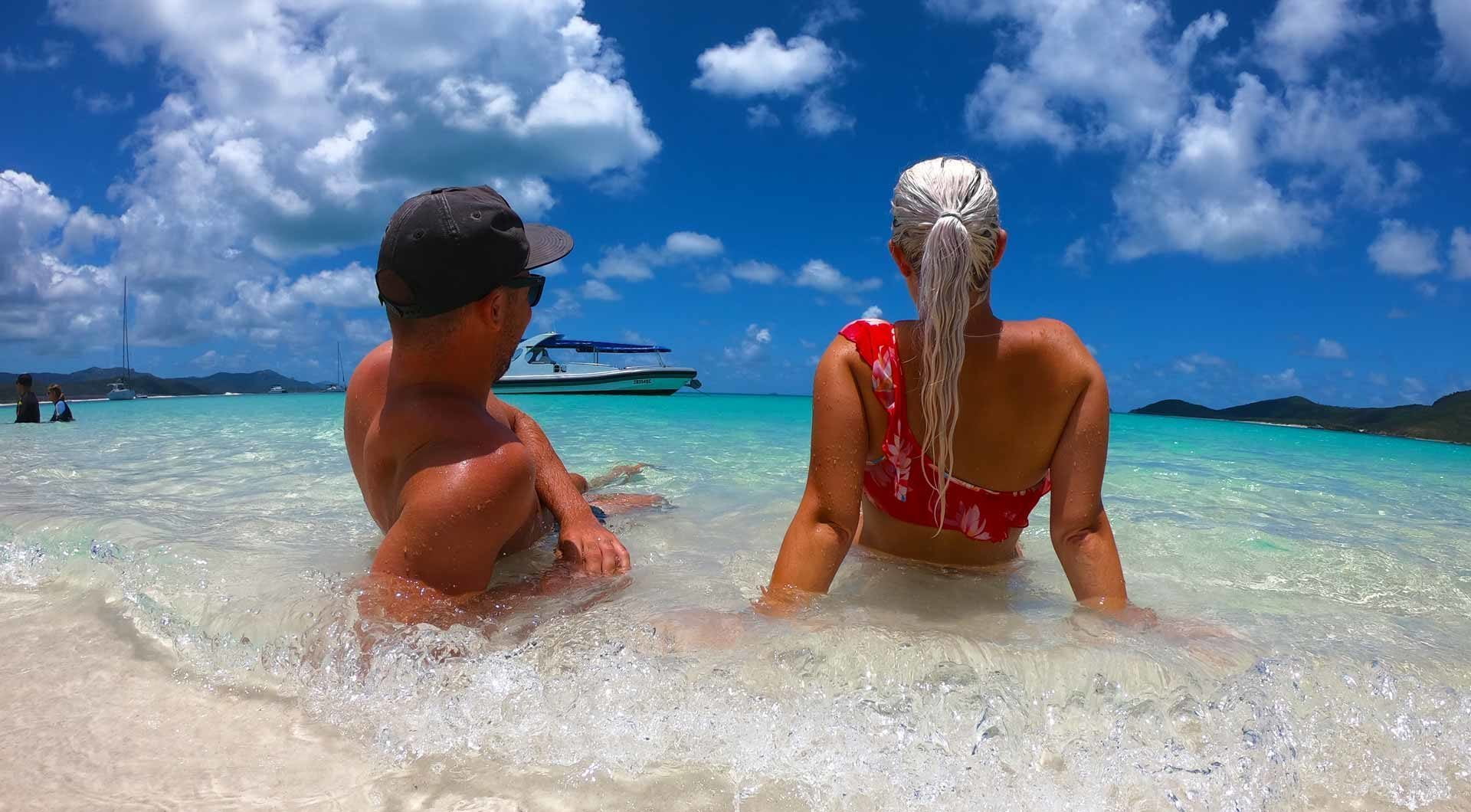The best season for camping on Whitehaven Beach
© Official Local Whitsundays Website
Whitehaven Beach is an amazing location that’s perfect for a camping adventure. With its crystal clear waters and pristine white sands, it’s no wonder that this beach is a popular destination for campers from all over the world. But when is the best time to go camping on Whitehaven Beach?
The best season for camping on Whitehaven Beach depends on a few factors, such as the weather, the crowds, and the activities you want to enjoy. Here’s a closer look at the different seasons in the Whitsunday Islands, and what each one has to offer so you can plan your holiday to what suits you.
Whitsundays Season Guide
Summer (December To February)
Summer is the busiest season on Whitehaven Beach, and it’s the hottest time of the year with average temperatures in the mid 30s to low 40s Celcius. Also the humidity is very high which makes the temperature seem higher than it is.
This is the perfect time to go swimming and enjoy the beach, but it can also be crowded and busy at both the south and northern ends. This is also the time of year for dangerous jellyfish. If you are planning a summer camping trip to Whitehaven Beach make sure to book your campsite in advance to secure a spot, and take a stinger suit! (like a lycra wetsuit)
Spring (September To November)
In my opinion, Spring is the best season for camping on Whitehaven Beach, as the weather is mild and pleasant, with average temperatures in the low 30s to mid 70s Celcius. This is the perfect time to enjoy outdoor activities, such as hiking, swimming, and camping, without the crowds and heat of summer. Be wary as this is also dangerous jellyfish season.
Autumn (March To May)
Autumn is a beautiful time to visit Whitehaven Beach, as the weather is cooler and more comfortable, with average temperatures in the High 20 s to low 30s Celcius. This is the perfect time to enjoy the beach without the crowds and heat of summer, and jellyfish season is at low (there will still be some around)
Winter (June To August)
Winter is the low season on Whitehaven Beach, with average temperatures in the mid 20s to low 30s Celcius. This is still a good time for swimming and beach activities, but it can be a great time to enjoy quiet and solitude on the beach. this is not jelly fish season so the ocean can be enjoyed without a stingersuit if desired (there still may be a few around)
Rember when camping to leave the campsite better than you found it, tidy up any rubbish and see our tips on sustainable camping here
Wet Season In The Whitsundays
The wet season in the Whitsundays normally runs from December to March each year. During this time the Whitsunday region experiences higher rainfall and more frequent storms. However, the wet season can also bring beautiful weather, with clear skies and warm temperatures. This can be a great time to visit the Whitsundays if you don’t mind the possibility of a shower or storm.
But be warned a good wet season can bring hundreds of millimetres of rain a day and flooding is likely at some stage over the season. The good news is it’s still hot even when raining.
The wet season is probably not the best season for camping on Whitehaven Beach as your chance of rain and hot temperatures are very high.
Hi, I’m Nath J, a long-time local who’s been lucky enough to live and work tourism in the Whitsundays since 2001.
Over the past two decades, I’ve helped visitors discover the best of this incredible region, from Whitehaven Beach and Hill Inlet to the hidden spots only locals know about. I started out managing boats and tours, and these days I run Ripple Effect Online, a tourism-focused digital marketing business helping local operators grow and connect with travellers like you.
I’ve written an ebook called Whitsunday Islands: A Journey through Paradise, created countless local travel guides, and earned recognition as a “Whitsundays Tourism Hero” from QTIC for my contribution to the region and gained First Nations Cultural Protocol training through QTIC as well. But more importantly, I’ve spent years listening to travellers, understanding what makes a trip unforgettable, and helping people plan the kind of experience they’ll talk about for years.
If you’re planning a visit to Whitehaven Beach or anywhere in the Whitsundays, I’m here to help you make it amazing.
Find me on Facebook and LinkedIn or drop me an email at info@nath-j.au.

